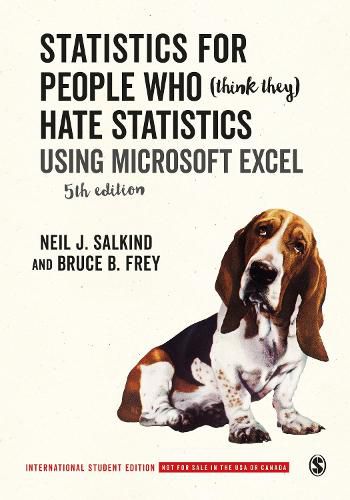Readings Newsletter
Become a Readings Member to make your shopping experience even easier.
Sign in or sign up for free!
You’re not far away from qualifying for FREE standard shipping within Australia
You’ve qualified for FREE standard shipping within Australia
The cart is loading…






This Fifth Edition of Neil J. Salkind’s Statistics for People Who (Think They) Hate Statistics: Using Microsoft Excel, presents an often intimidating and difficult subject in a way that is clear, informative, and personable. Opening with an introduction to Excel, including coverage of how to use functions and formulas, this edition shows students how to install the Excel Data Analysis Tools option to access a host of useful analytical techniques. New to the Fifth Edition is new co-author Bruce Frey who has added a new feature on statisticians throughout history (with a focus on the contributions of women and people of color). He has updated the Real-World Stats feature, and added more on effect sizes, updated the discussions on hypotheses, measurement concepts like validity and reliability, and has more closely tied analytical choices to the level of measurement of variables.
$9.00 standard shipping within Australia
FREE standard shipping within Australia for orders over $100.00
Express & International shipping calculated at checkout
This Fifth Edition of Neil J. Salkind’s Statistics for People Who (Think They) Hate Statistics: Using Microsoft Excel, presents an often intimidating and difficult subject in a way that is clear, informative, and personable. Opening with an introduction to Excel, including coverage of how to use functions and formulas, this edition shows students how to install the Excel Data Analysis Tools option to access a host of useful analytical techniques. New to the Fifth Edition is new co-author Bruce Frey who has added a new feature on statisticians throughout history (with a focus on the contributions of women and people of color). He has updated the Real-World Stats feature, and added more on effect sizes, updated the discussions on hypotheses, measurement concepts like validity and reliability, and has more closely tied analytical choices to the level of measurement of variables.